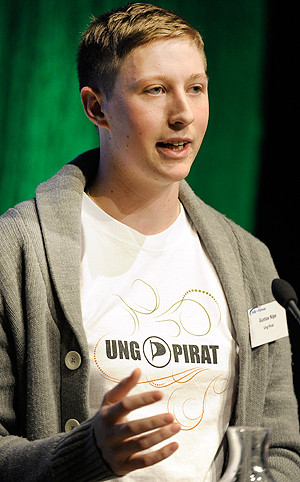Politicians, military personal and journalists hacked in Pirate Party stunt

Politicians and military experts attending a major security and defence conference in Sälen, Sweden, fell victim to hacking from an activist protesting internet surveillance.
Gustav Nipe, chairman of the youth wing of the Swedish Pirate Party, set up a wi-fi network named "Open Guest" at the conference, through which hundreds of attendees connected to the internet.

"It's very embarrassing because the data we collected showed that some people were looking at Skype, eBay and Blocket and stuff like that, or looking for holidays and where you could go and hike the forest," Nipe told English-language Swedish newspaper The Local.
"The security establishment was in Sälen pushing for more surveillance, but then leading figures go an log on to an unsecure wi-fi network."
The Swedish Pirate Party was formed in 2006 in an effort to reform laws regarding copyright and patents, however it has more recently broadened its focus to include resistance to mass digital surveillance.
By turning the tables on the conference attendees, Nipe hoped to highlight the issue of network monitoring in Sweden.
"The scary part is that with unsecure networks like these, you can end up getting access even to secure servers because people so often use the same passwords for different sites," Nipe said.
"We could have got into the government's server or used other information to track people in their everyday lives."
Swedish lawyers have criticised Nipe, with some claiming the stunt breached Sweden's Personal Data Act. Nipe has denied such allegations and stated only he had access to the data.
He said: "I am confident that we are on the right side of the law and if anything was illegal then it was people using our network without permission and high-ranking people working in security using unprotected, unencrypted networks to log into their emails."
© Copyright IBTimes 2025. All rights reserved.






















